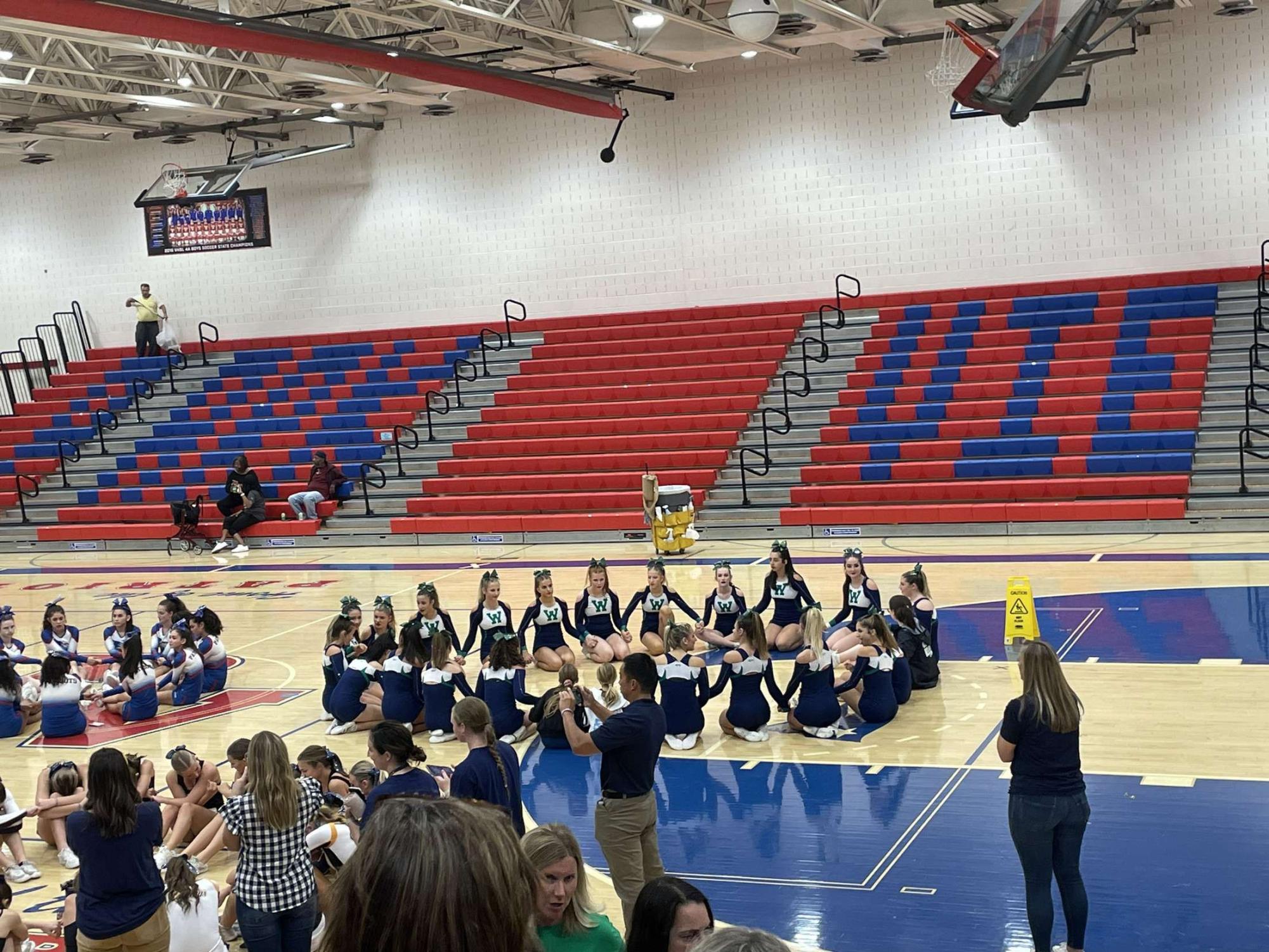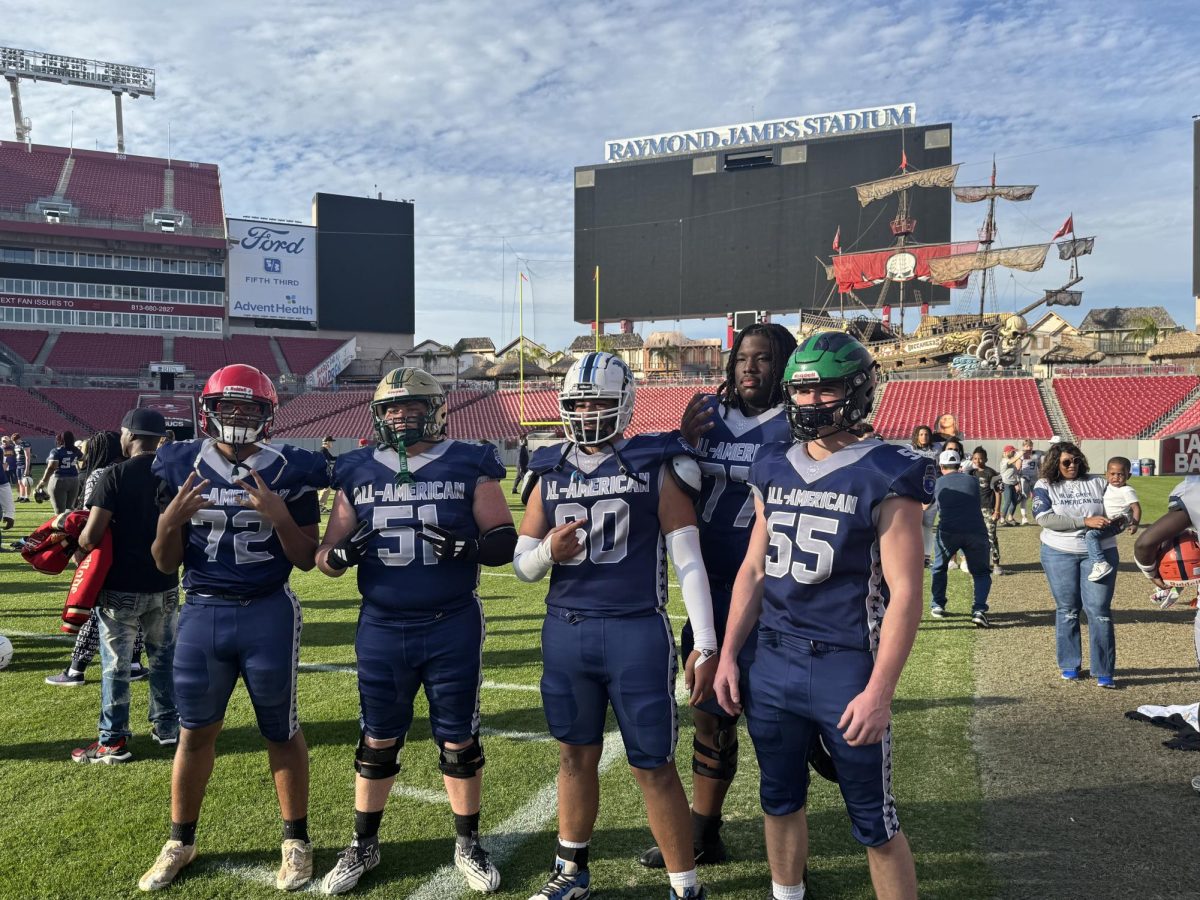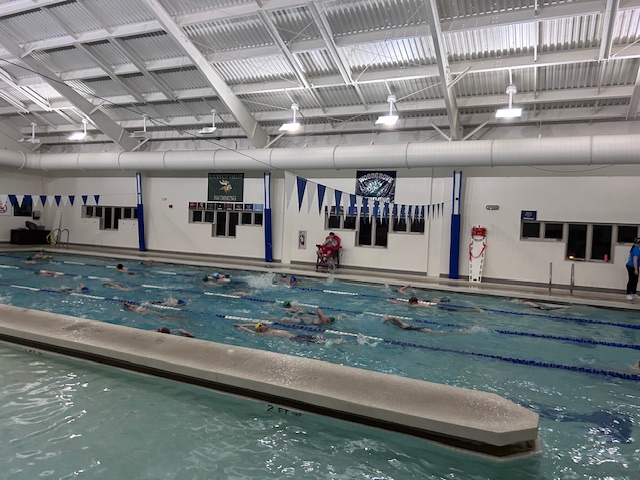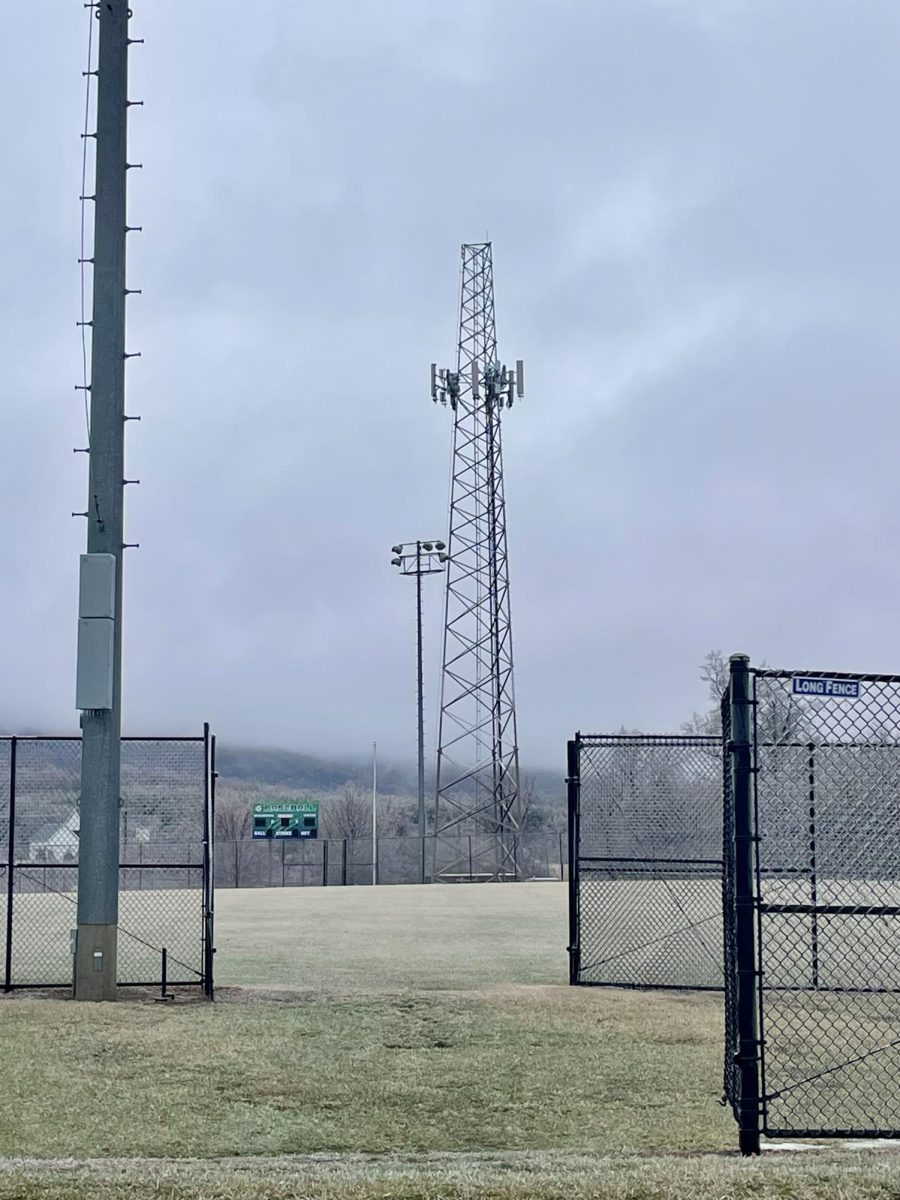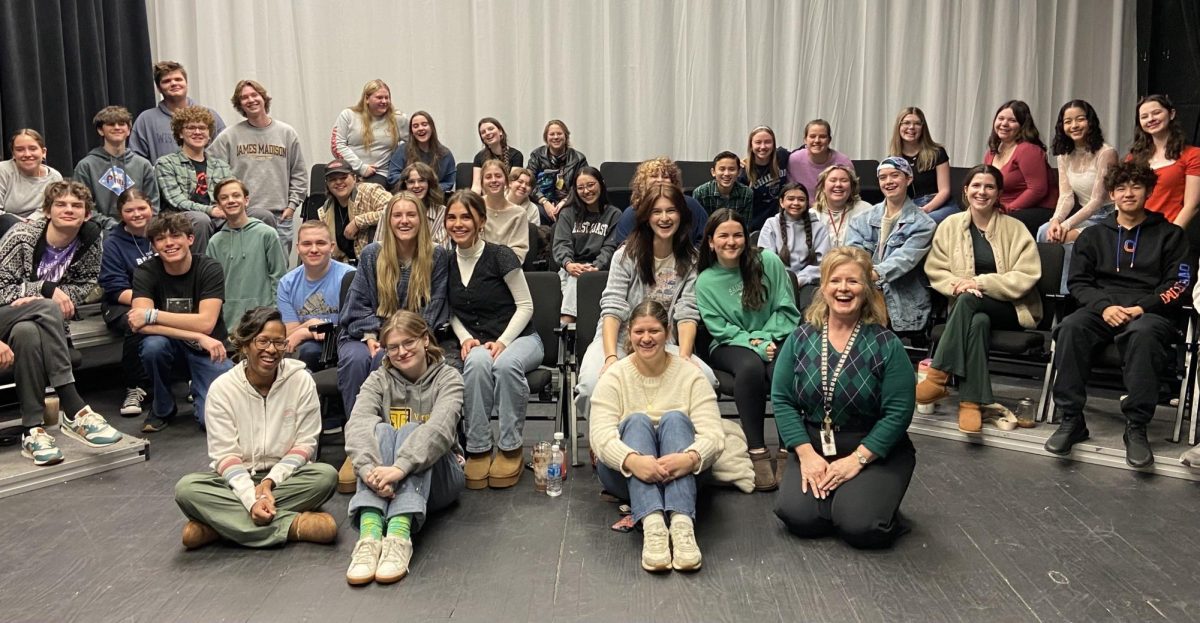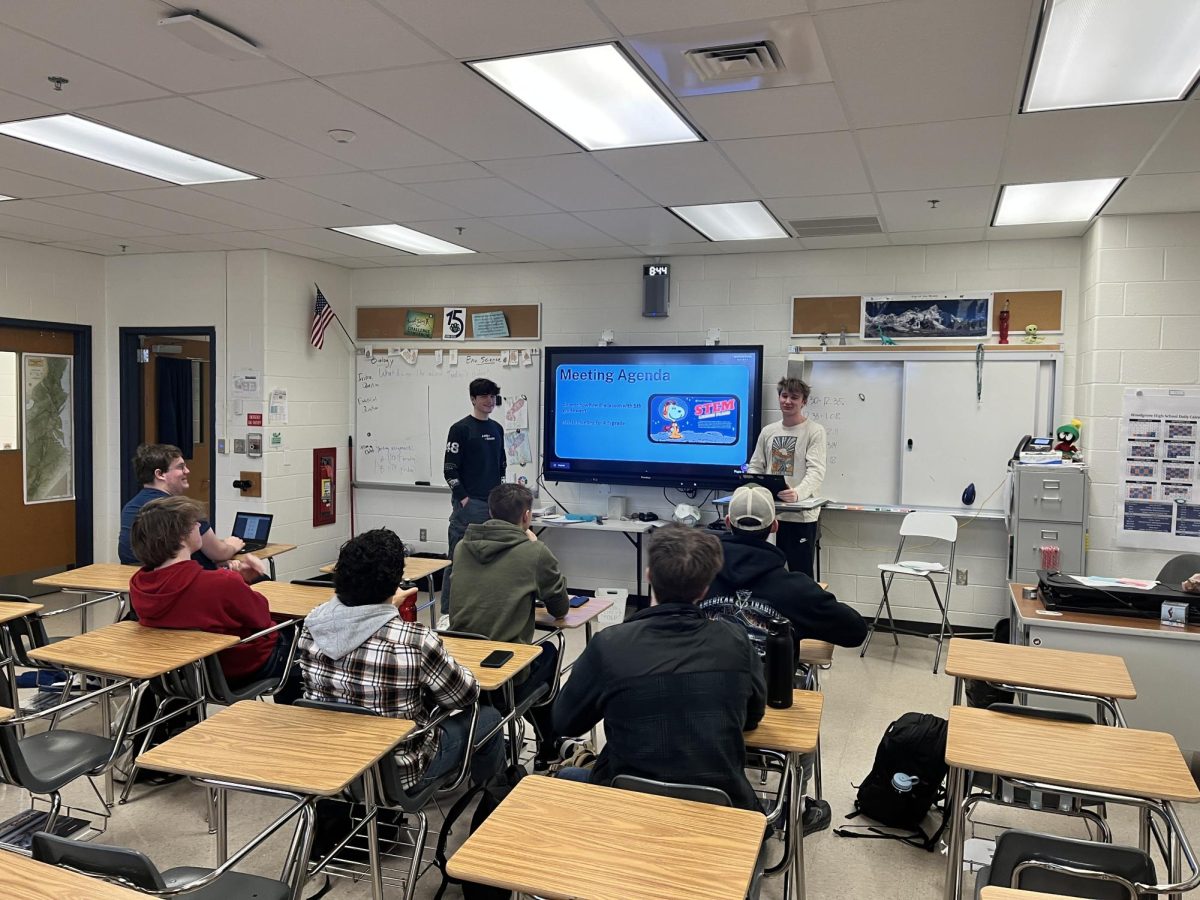Think of the last time you went to a football or basketball game at Woodgrove. Chances are, you have noticed the sideline cheerleaders. On the surface, it may seem like they all do the same thing; shaking pom poms, supporting the athletes on the field and court, and contributing to the energy of the crowd. However, there is a lot more to the sport of cheer than just that, including the commonly asked question: what is the difference between fall and winter cheer?
Some of the surface-level differences are much more obvious, including the fact that they are cheering on different sports in different places. During the fall, cheer takes place outdoors on the track surrounding the football field. This is where people at the game can see the varsity cheer team cheer on the varsity football team, while the junior varsity cheer team can be seen at the junior varsity football games.
The winter season, however, takes place indoors. Unlike fall, which has two teams, winter only has one team, that being varsity. The winter cheerleaders perform at both boys and girls varsity basketball games. They cheer on the athletes playing on the basketball court in the school gym, normally staying behind the hoop.
The spirit in the gym versus at the stadium is very different. Kenzie Kapsiak, a junior who participates in both fall and winter cheer, shared a unique perspective. She explained, “The environment [of fall cheer] is so different from winter cheer… [In winter] there’s a lot going on… There’s so much excitement and so many people.” Kapsiak also described the difference in space and how that affects the cheers that the captain calls, and how much stunting and flying they are able to execute. “For fall cheer, we can run down the sidelines, we can cheer on the football players… For basketball, our space is so small, and if we step out, we’re in trouble… We try and [fly and stunt], but sometimes it’s a little bit difficult because there’s not very much time… If you’re not paying attention, there’s a 90% chance you’ll get tackled by a basketball player.”
However, cheering on the players is not the only thing the fall cheerleaders do, as they also compete against other local schools.“[We competed] pretty often, like every other weekend,” said Vanessa Jackson, a freshman who was on varsity in the fall. The routines for these competitions consist of stunting, flying, tumbling, and dancing that get observed by judges who determine their overall score. Kapsiak, however, informs that there are no competitions during the winter season, only sideline cheer. This makes winter and fall practices very different.
Another noticeable difference is the girls on the roster. None of the fall varsity cheerleaders did winter cheer this season. Because winter cheer is seen as more of a prep for the next year’s fall season, Jackson went back to her club team as she had already made varsity.
The girls also describe their favorite thing about cheerleading. Kapsiak said, “Most of the girls from fall returned, so just being able to see them again. And then making new relationships along with the old ones because we have a lot of new girls as well.” Jackson, agreeing with Kapsiak, said, “The girls on the team. They’re also super nice.”
Cheer is a physically demanding sport with daily practices lasting two to two and a half hours every day, excluding gamedays, where oftentimes the cheerleaders do not get home until very late, sometimes playing multiple games a night. Having fun with the people you are around and finding positives makes cheer in both fall and winter more enjoyable for the girls and, in return, brings more energy to the games that so many people enjoy watching.



